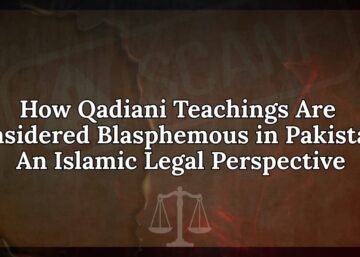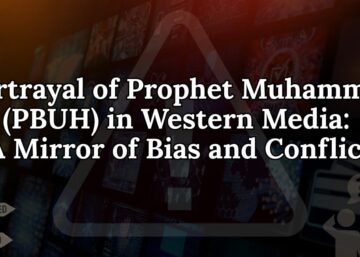Role of Sahabah in Preserving the Finality of Prophethood
The companions of the Holy Prophet Muhammad (peace be upon him), known as the Sahabah, played a crucial role in upholding the doctrine of the finality of prophethood. Their actions, teachings, and dedication to the message of Islam significantly contributed to preserving and disseminating this vital tenet of faith. Here’s how they upheld this principle:
Upholding the Doctrine: Affirmation of Faith
The Sahabah unequivocally affirmed the belief in the finality of prophethood. They recognized Muhammad (peace be upon him) as the last messenger sent by Allah and understood the implications of this doctrine. Their unwavering faith is exemplified in their testimonies and writings, which consistently highlight the Prophet’s unique status. The clarity with which they expressed this belief laid the groundwork for subsequent generations of Muslims.
The Protection of Last Revelation
One of the most significant contributions of the companions was their role in preserving the Quran. After the Prophet’s (peace be upon him) passing, several companions took it upon themselves to compile the Quranic revelations into a single text. This was a critical step in ensuring that the final message of Islam remained intact and accessible to future generations. Prominent companions like Zaid ibn Thabit were instrumental in this effort, collecting and verifying the verses as recited by the Prophet during his lifetime.
The Role of Hadith’s Documentation
In addition to the Quran, the Sahabah were responsible for transmitting the teachings and practices of the Prophet (peace be upon him) through Hadith. They meticulously memorized and recorded his sayings and actions, ensuring that the Sunnah would remain a guiding force for the Muslim community. This dedication to preserving the Prophet’s teachings was essential in demonstrating the practical application of the belief in his finality and the comprehensive nature of his message.
Living the Message: Profound Nature and Demeanor
The companions of the Prophet (peace be upon him) embodied the values and principles he preached. Their lives served as practical examples of how to implement Islamic teachings. Figures like Abu Bakr, Umar, Uthman, and Ali (may Allah be pleased with them) demonstrated integrity, justice, and compassion in their interactions with others. By living according to the Prophet’s teachings, they reinforced the significance of his finality and established a model for future generations.
Guarding the Faith: Termination of Apostasy and False Claims
Following the Prophet’s death, some tribes attempted to renounce Islam or claimed prophethood for themselves. The companions, particularly during the Ridda Wars (Wars of Apostasy), stood firmly against these movements. Leaders like Abu Bakr emphasized that the Prophet Muhammad (peace be upon him) was the last of the prophets, and any claim to prophethood after him was false. Their collective resolve ensured the preservation of Islamic teachings and reaffirmed the finality of prophethood.
Establishing a Just Society: Society Centered on Prophet’s Teachings
The companions sought to implement the principles of justice and equality that the Prophet (peace be upon him) taught. They established a society based on moral and ethical values, which they believed were derived from the final revelation of Islam. Their governance, whether during the caliphate of Abu Bakr, Umar, Uthman or Ali, reflected the teachings of the Prophet and emphasized the importance of upholding justice, community welfare, and social responsibility.
Conserving the Eternal Message
The Sahabah played a vital role in interpreting Islamic teachings in light of contemporary issues. Their understanding of the finality of prophethood led them to derive rulings and solutions that were consistent with the core teachings of Islam. They recognized that, while the Prophet’s (peace be upon him) message was complete, the application of that message in a changing world required thoughtful engagement with the Quran and Sunnah.
Expansion of Islamic Message
The companions were not only custodians of the faith; they actively spread the message of Islam beyond the Arabian Peninsula. Their missionary efforts extended into various regions, where they taught the principles of the religion and emphasized the finality of the Prophet Muhammad (peace be upon him). This propagation was crucial in establishing the widespread acceptance of Islam and ensuring that the doctrine of Khatam-un-Nabiyyin (finality of prophethood) was communicated to diverse cultures and communities.
Conclusion
The companions of the Holy Prophet Muhammad (peace be upon him) upheld the doctrine of the finality of prophethood through their unwavering faith, dedication to preserving the Quran and Hadith, and exemplary conduct. Their commitment to implementing the teachings of Islam in their lives and societies ensured that the message of the Prophet (peace be upon him) remained relevant and intact. By defending the faith against challenges and actively promoting its principles, the Sahabah laid a strong foundation for the Muslim Ummah, emphasizing the significance of Muhammad (peace be upon him) as the last messenger of Allah. Their legacy continues to inspire Muslims today, serving as a reminder of the importance of adhering to the finality of prophethood in all aspects of life.



